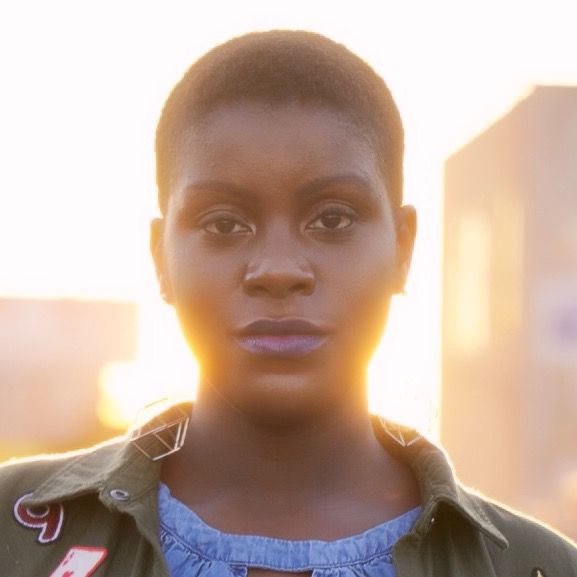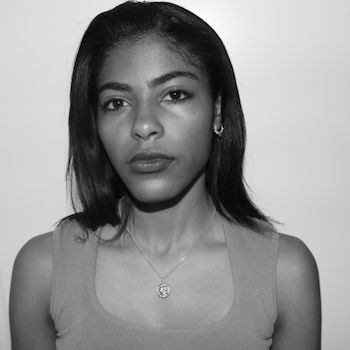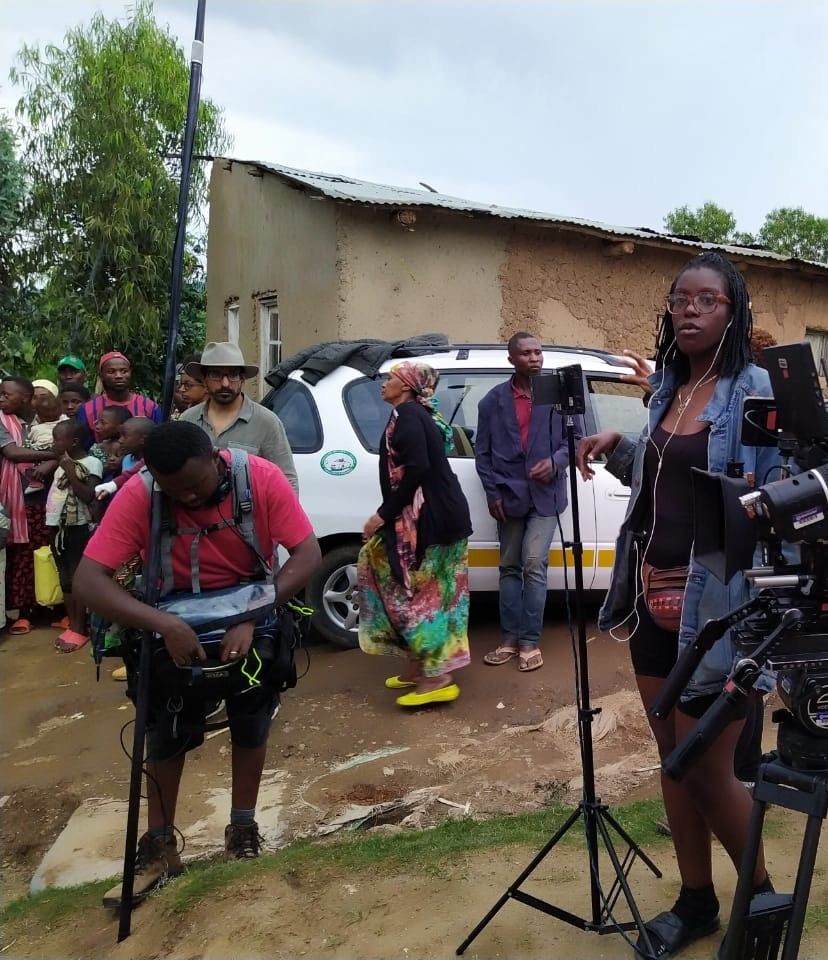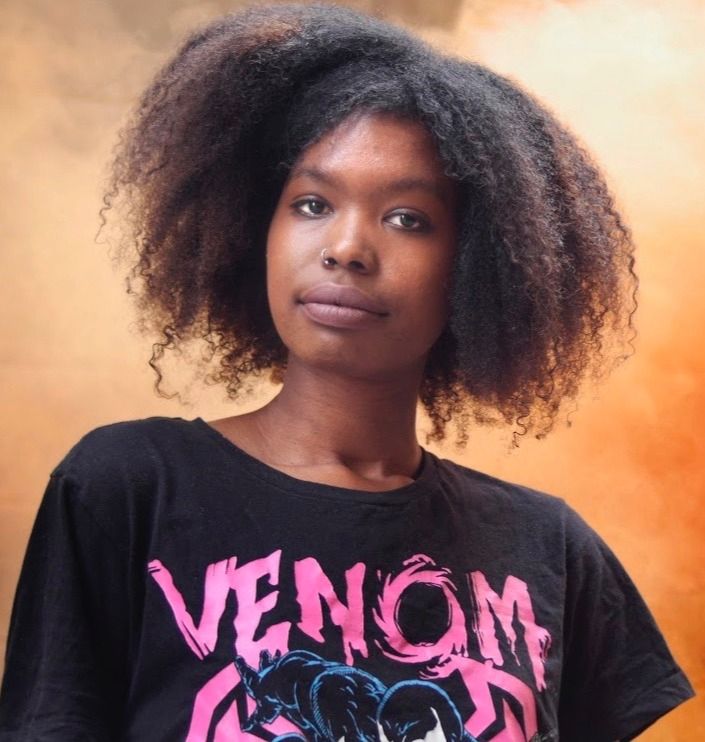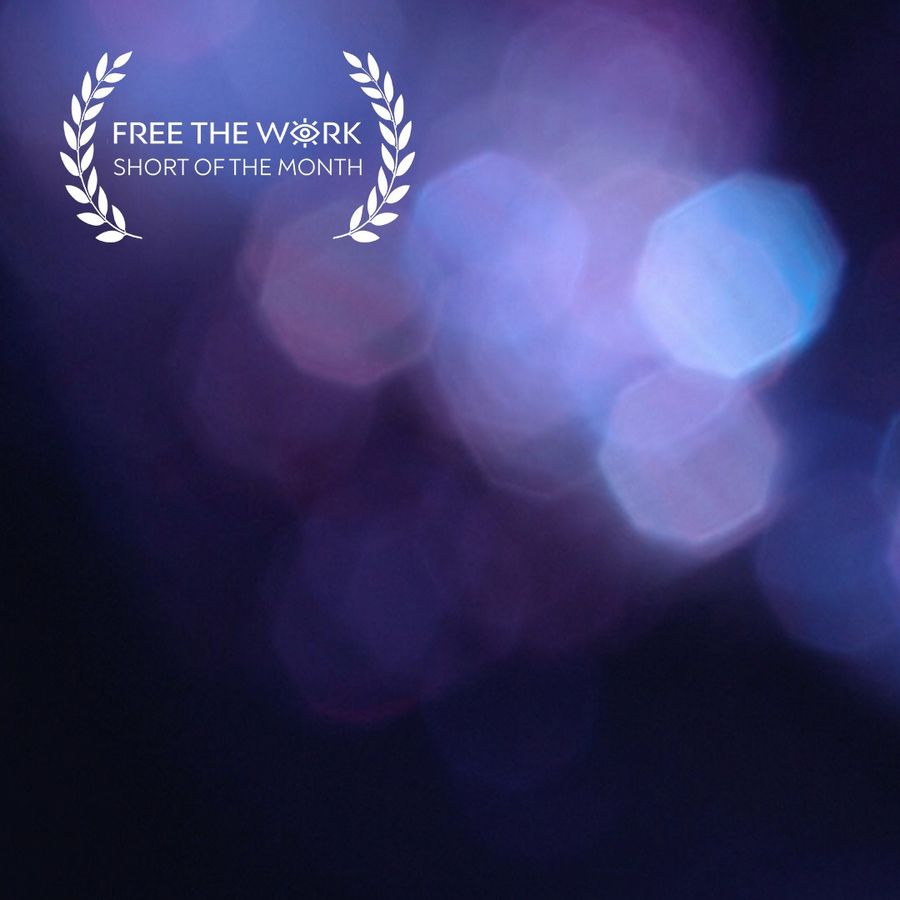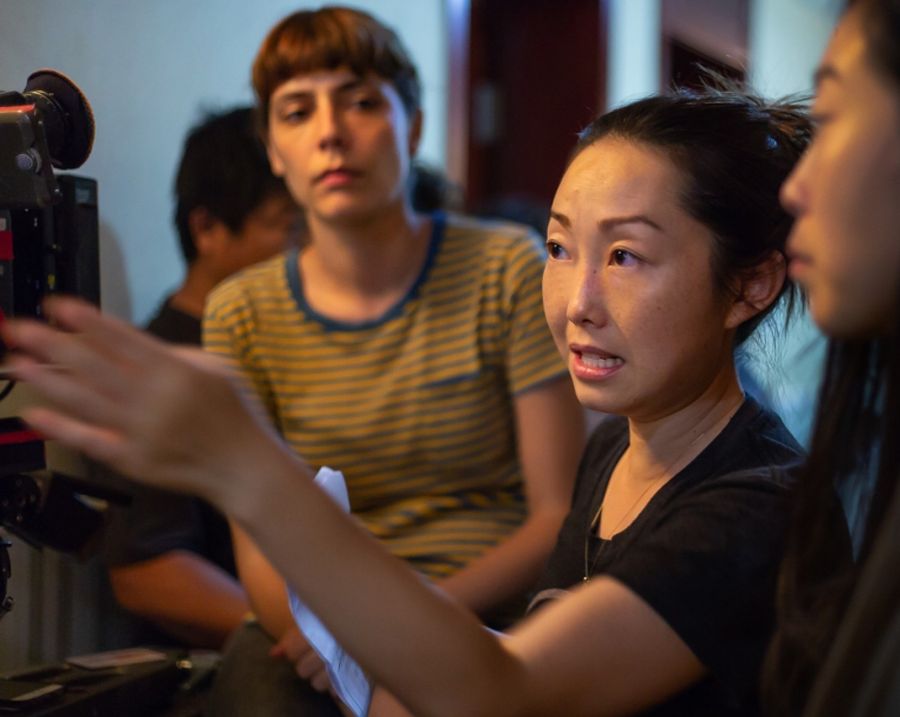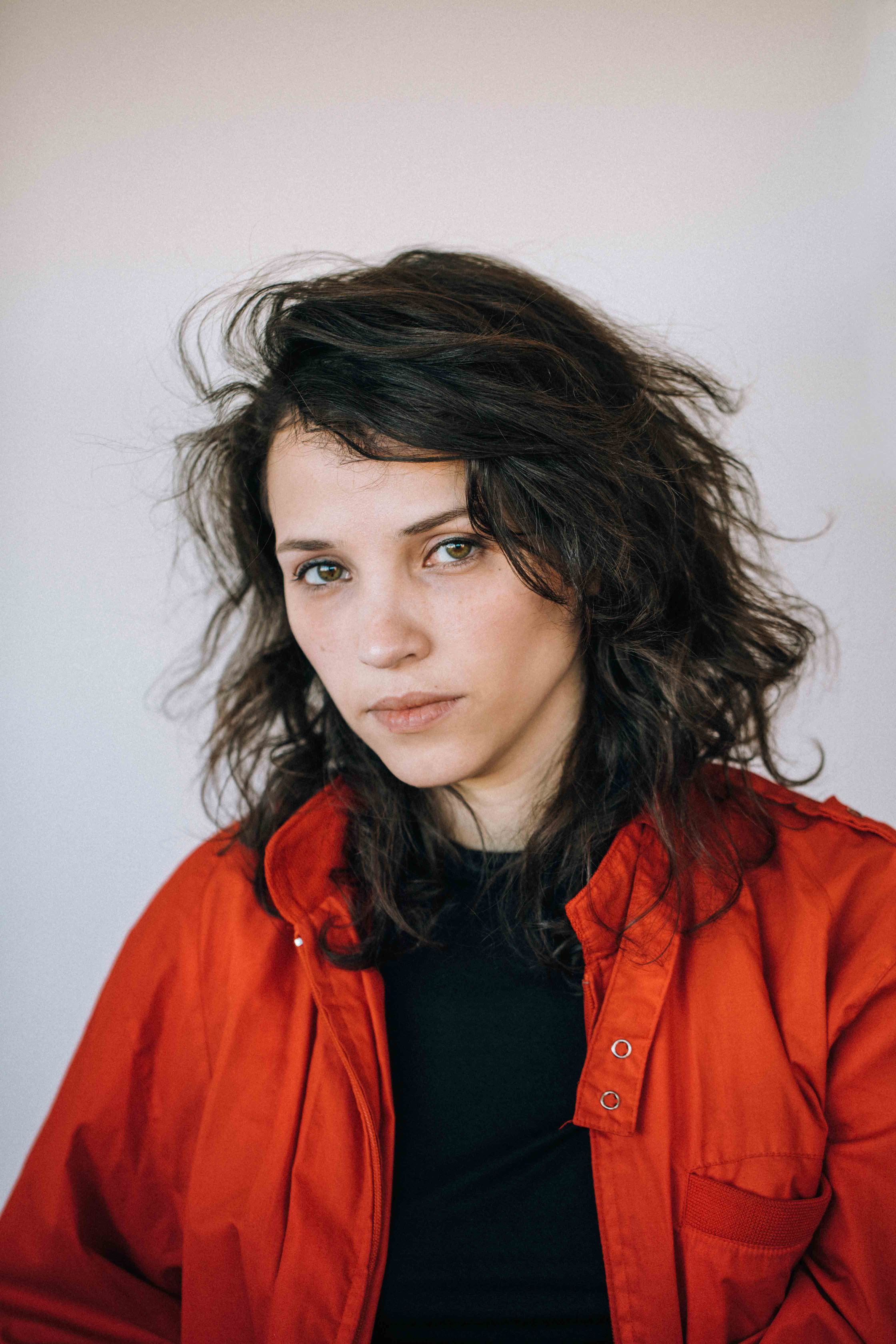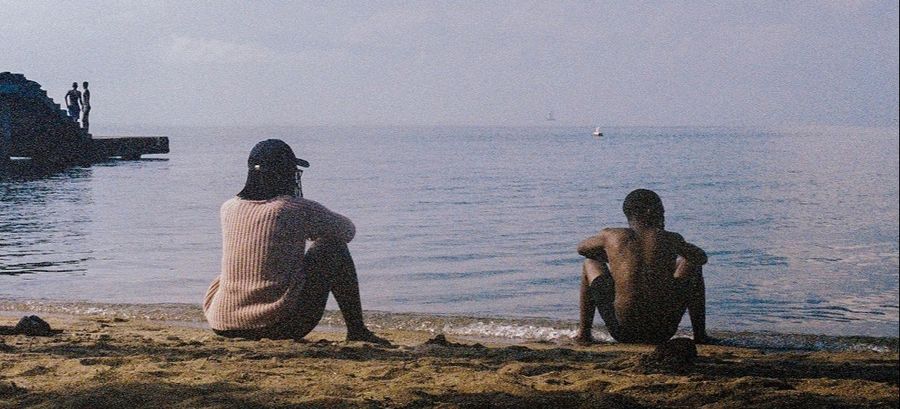
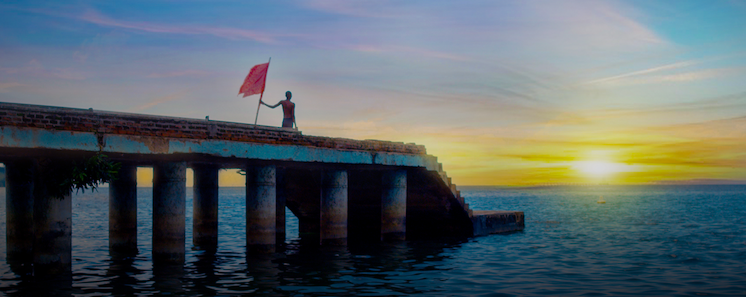
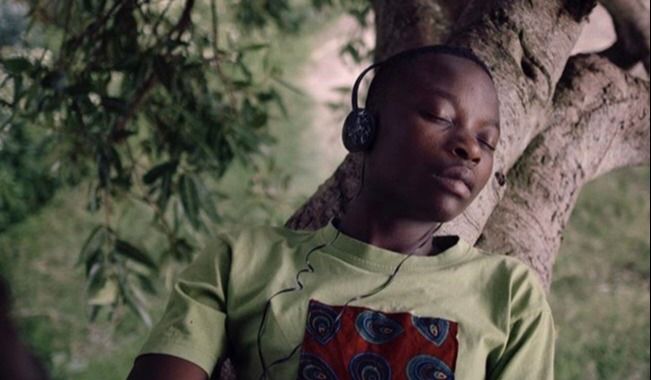
Cover, Header, and Image Strip Photos Courtesy of Hilda House, Tracy Keza
It's been 25 years since the Rwandan genocide. Now, Rwanda is one of the most peaceful countries in Africa. Currently, there’s a lot of social support for the adults that lived through the tragic event. But there's not as much support for the children who have to navigate their inherited generational trauma.
For the past few years, Director S-hekh Shem Hetep Ebron has been leading a charity called TATFOR in the village of Gisenyi, Rwanda. The charity helps the children of the village by donating school supplies to students in need. Before the process of filming, S-hekh Shem and her producer and co-writer, Danielle Morgan Boyd, spent a lot of time with the kids involved with the charity. That is where the idea for their indie feature, Ishema, was born.
Ishema follows a 15-year-old boy named Emmanuel who discovers that his mother was raped by his father and that he is the product of that rape. His father was Hutu, the side that killed the Tutsis during the genocide. As he begins to embrace both the reality of his circumstances and his ability to choose his own path, he sees that many other children suffer in silence from the same issues of trauma and self-acceptance.
The film required that the whole crew move to Rwanda and live among the locals of Gisenyi for a few months. The entire experience, intimately tied the production to the story of the people it aimed to portray. Simply put, Ishema is a story made by the community, not just about the community.
“I personally want to thank the community of Gisenyi. For being so accommodating and allowing us to come in to tell a difficult story. We took over a whole village. Yes, we gave people jobs and we paid them maybe more than what they would have made in the year, but they didn't have to allow us to come in.
I'm so thankful for the woman that we hired, the Rwandan woman, and the actresses and the actors that experienced the things we were talking about in the film. They are genocide survivors, so it wasn’t easy to be in this film. I can’t thank them enough for trusting us Westerners and allowing us to come into their community. They gave us way more than we gave them.”
—Director S-hekh Shem Hetep Ebron
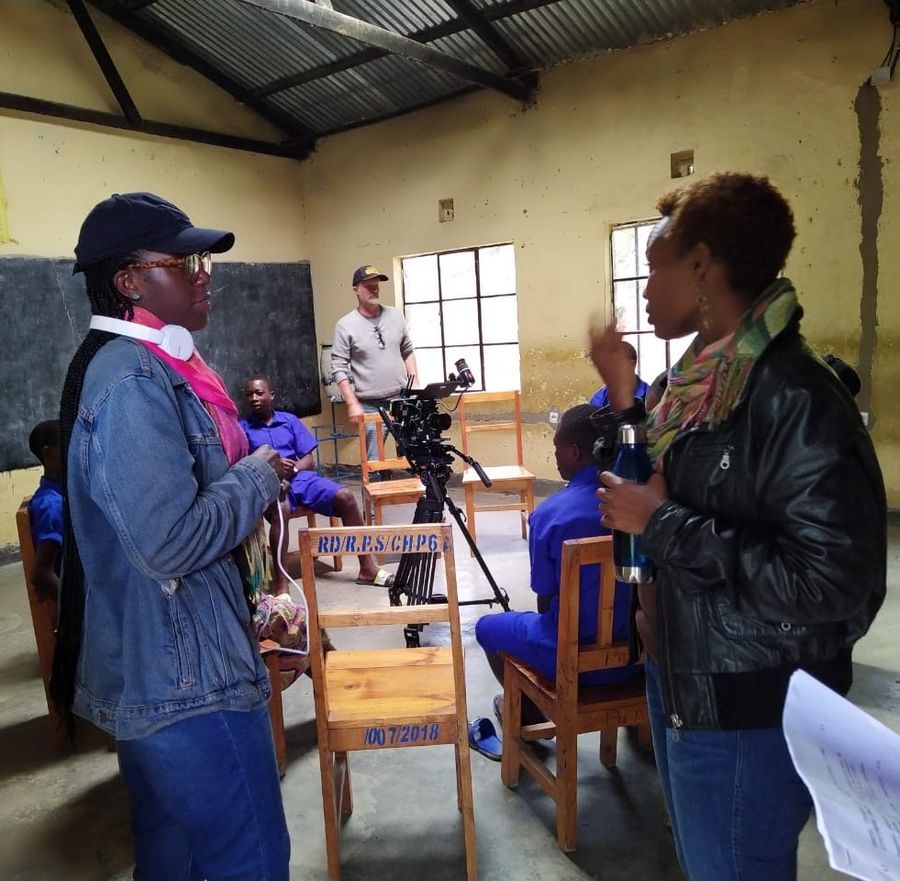
Here is a conversation between Danielle and S-hekh Shem, where they discuss the obstacles they faced during production, and why, in spite of everything, they would do it all again.
The film is currently searching for support in post-production. After reading, you can help S-hekh Shem and Danielle by donating to their crowdfunding campaign.

"One of the best pieces of advice that I have heard came from Sam Wolff, a DP that I had worked with a few months ago: 'Lean in. Lean into the experience, lean into it whether it's low budget or not. Just lean into the circumstances.'"
— Danielle Morgan Boyd, Producer and Co-writer
Danielle Morgan Boyd: First off, I want to say that to be a part of this film was a blessing to me. It kind of fell into my lap and I was in love with the idea from the beginning. But I became involved in it a lot later in the process. So what did you go through for the film before I stepped in?
S-hekh Shem Hetep Ebron: Originally I just wanted to make a short that didn't have any dialogue. Just more about the music and the action. But as I was creating this, I sat down with Tamika Miller, an amazing director friend of mine, and she's like, "If you're going to tell this story, you need to make it a feature because it's so packed and so heavy . . . You need to go deeper and explore." So that's when I was like, "I definitely need to bring on some help to make it a feature," because the idea of moving from a short to a feature was a big jump for me.
That's when I started to work with you on revising the script and communicating with the kids and the people in Rwanda.
DMB: I remember we had to get the script translated by an artist because a direct translation wasn’t enough to get the meaning. We got the script translated five times, right?
SHE: Yeah, which is a lot, but one goal of mine was to make sure this story stays authentic and that it's coming from the community. I'm from a different culture so I wanted it to be as respectful as possible.
DMB: That’s something that we both had in common. For me as a writer, I knew that I couldn’t come in thinking, "Oh, I could think about what it means to be Rwandan or what it means to be in this village in these circumstances." You can't fake a culture you haven’t experienced.
SHE: I liked how we kept the script open to the creative process, based on how the children in the community actually felt.
DMB: Yeah. I think after arriving and interacting with the people, I knew I had to approach the script from a human experience; human emotion is something we all have in common.
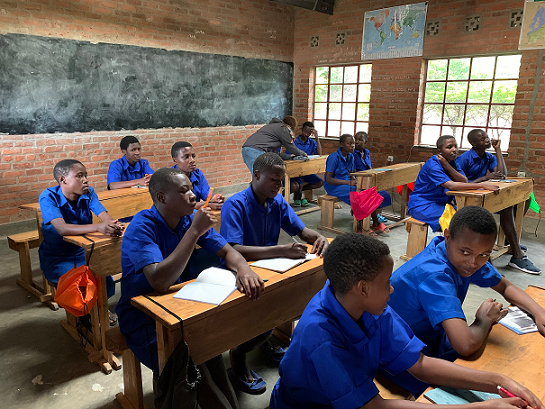

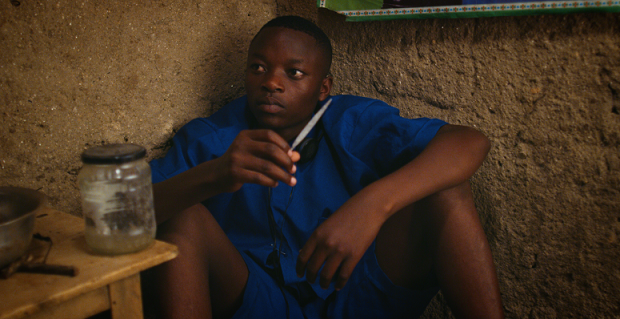
SHE: And I think choosing to tell a children’s story was a powerful thing to do. The script put a bug in the ear of the community that these children do need a support system because they are dealing with a lot of emotional and physical burden. Even if they didn't experience a genocide, they're still experiencing trauma because their parents are not who they used to be. And most childern don’t even know what their parents were like before the genocide.
DMB: Considering their circumstances, it was really surreal when we got there and I felt like the script was actually resonating with the people. It just felt like we made this film with the community, not just about the community.
Generally, there was a lot of things that surprised me along the way, because we were trying to produce a story that’s never been done before.
SHE: Yeah, we did a lot of unconventional things. Like, how we had the main character live with us. He had an attitude and he didn't want to bathe everyday—I think all 16-year-olds boys are the same: just stubborn. But he also learned more English while we were there. We even took him to the club, gave him vocal lessons in the house, did an album. It was a once-in-a-lifetime experience for everyone.
DMB: What do you think was the most exciting moment for you in the process?
SHE: I had so many moments, but the most exciting was seeing the chemistry between Daniel and Emmanuel, one of our two main characters. Before we were shooting I said to them, "Listen, I want you guys to create a secret handshake. And at some point in the film I'm going to tell you you have to do that secret handshake.”
Then they looked at me, went outside, and they instantly were laughing with each other. They didn't know each other before. In my head, I was like, "Oh this film is going to be good.”
DMB: Yeah, the way that their chemistry was just so magical is something that you can't just create. Which brings me to my next point: You are one person, who had to organize all the departments and financing. Something could have gone wrong. What was the greatest obstacle for you during filming and how did you get through it?
SHE: The greatest physical challenge was getting used to the water. The water was harsh on my body, so I developed rashes. I also lost a lot of weight, like 20 pounds.
Aside from that, independent films are so mentally hard. I put more of a burden on myself because I felt responsible for all the people who came to Rwanda for my idea. We didn’t just hire locals. We hired people who had to spend time away from their families and their regular jobs for almost 40 days. I felt responsible for making sure that my crew had a good experience. I spent a lot of time crying in my room, but I knew that I had to always stay in control.
I think it was day 16 when my AC, Samuel Maina, was like, "Man, this is really ballsy to do your first feature out in this country, in a different language, while living with your crew.” And I was like, "If I could do this, I could do anything." He's like, "You're just now realizing that?”
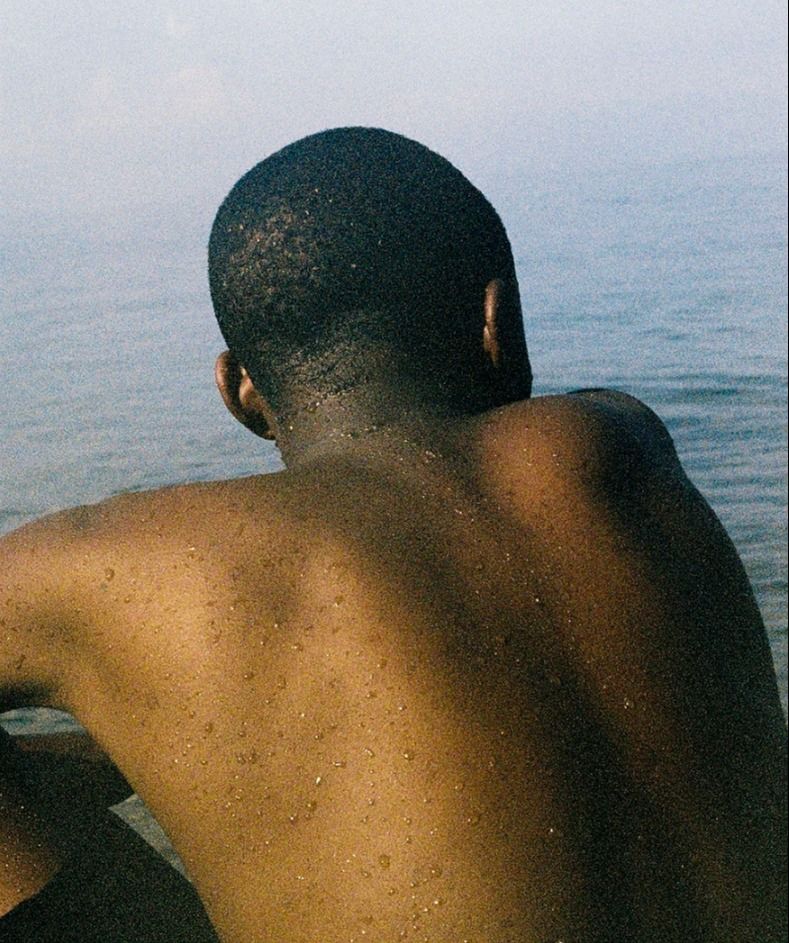
"Yeah, we did a lot of unconventional things. Like, how we had the main character live with us. We even took him to the club, gave him vocal lessons in the house, did an album. It was a once-in-a-lifetime experience for everyone."
—Director S-hekh Shem Hetep Ebron
DMB: Yeah, one of the best pieces of advice that I have heard came from Sam Wolff, a DP that I had worked with a few months ago: "Lean in. Lean into the experience, lean into it whether it's low budget or not. Just lean into the circumstances." So no matter how tired I got, I kept thinking: Okay this is not going to get easier. Be productive. How could I make things better?
SHE: Yeah, independent film’s hard, but it just shows you that you can really do anything.
DMB: And I think because everyone cared and believed that we were doing something special, that’s what kept us going. We all still believe that the film will have an impact that is bigger than us.
What's some advice you'd offer to another director on her first microbudget feature?
SHE: So I have a few pieces of advice: Be open to change and taking risks. People would tell me, "You're crazy. You're doing your first feature in another country," and whatever. If I would've listened to them, I would've never made it onto that plane. So don't listen to anyone that tells you you're crazy; they don't see the vision.
Also, trust your gut. I cast one actor as the pastor after seeing him walk out of a church. Everybody was like, "Are you sure? He doesn't have the look." And I'm like, "We need a pastor." So I trusted my gut and fought for him. When he translated on camera, he was so amazing.
DMB: Yeah. Honestly, the fact that you always knew what you wanted led us to trust and support you better.
SHE: But I also was so well supported because the women that were a part of this film were exceptional. The women crew members were more in tune with how I needed support. Like, when I was having a little bit of anxiety, you would send me nice texts. So I was lucky to have you as a producer and writer on this film and Tracy Keza our first AD and Fiona Mukundente, Sandrine Irangena, and Becky Mucyo. Hire as many women as possible. Hire, hire, hire.
DMB: I know that I was actually fighting you about going to Rwanda for the longest time because honestly, I was scared. But it hit me one day: I love this project and this is one of the better projects I've ever been involved in, so why wouldn't I want to be there?
The whole experience was beautiful. You took everything on with such dedication to not only yourself but to everyone else and it was extremely respectful. That’s how a director would ideally conduct themselves in a process like this. So thank you for this experience.
SHE: I was incredibly honored that you believed enough in this project to leave your job and wake up at four o'clock in the morning to do rewrites. You sacrificed so much. I kept thinking, "I cannot give up. I cannot let you down and I cannot let this crew down because of the sacrifices you all made." And you made sure I had a little bit of fun.
DMB: You had to hit that South African wine [laughs].
SHE: You would be like, "It's 10 o'clock. I’m going to have to get that wine. Is that store still open? We're about to get some wine." And I'm like, "Okay." We drank so much wine together after set.
Some people are in film for the wrong reasons. In hard situations it will show who was not there for the right reasons, who was just latching onto you because they think they're going to be this. It was great to have the majority of people there for the right reasons.
DMB: I think you had a great support system because you’ve always been a support to a lot of people. Thank you for making this experience beautiful for all of us.
SHE: You're welcome, that was so touching! I'm so excited to continue this project with you.
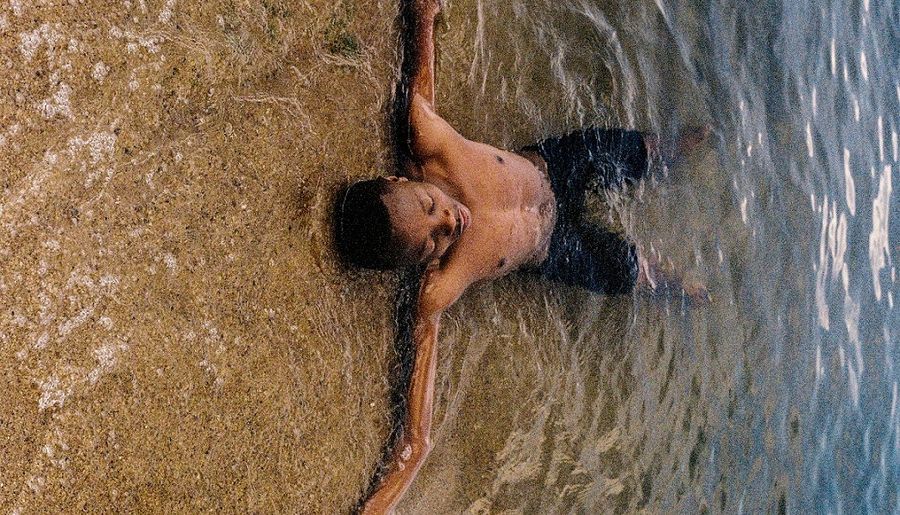
S-hekh Shem Hetep Ebron
S-hekh Shem Hetep Ebron is a freelance director from New York City, who believes in the transformative power of storytelling. She started her career as a journalist, which afforded her the opportunity to travel globally and meet people from all walks of life. This experience ignited her true desire and passion for film making. She has produced documentaries for Sony Music and Moguldom studios. In 2017 she made her directing debut at the LA film festival with her short film "I, Too, Am America." She has also directed and produced music videos for countless independent artists including grammy nomination artist Ruby Friedman. In 2019 she directed her first feature "Ishema" In Rwanda. The film is currently in post-production. S-hekh Shem Hetep hopes to use filmmaking and storytelling to inspire social change while transfiguring the fabric of modern films.
